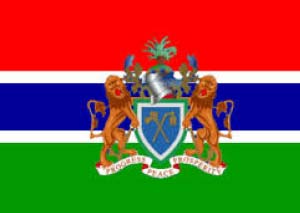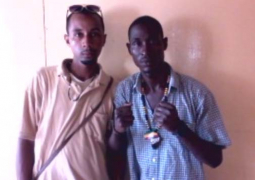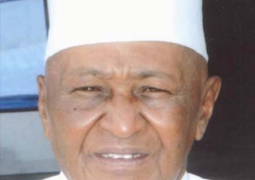
After several years of what it says are broken promises, the U.S. government has singled out Thailand, Malaysia, Venezuela and The Gambia for taking insufficient action against human trafficking. In its annual Trafficking in Persons (TIP) Report, released Friday 20 June, the U.S. State Department downgraded the four countries to Tier 3, the lowest possible ranking it gives for national responses to fighting modern day slavery.
The report says there is evidence of forced labor and sex trafficking in Malaysia and Thailand. It highlights Malaysia’s problem with migrants from other Asian nations who seek work on farms, factories and construction sites only to be trapped and have their passports taken and wages withheld.
In Thailand, the report says tens of thousands of migrants from neighboring countries are being exploited in the commercial sex industry, on fishing boats or as domestic servants.
And in Venezuela, women and girls are often lured from poor interior regions to tourist centers with the promise of false job offers. When they arrive, they are often forced into prostitution.
The report ranks governments based on their perceived efforts to acknowledge and combat human trafficking, advance reforms and target resources for prevention, protection and prosecution programs.
It divides nations into four tiers based on their compliance with 11 “minimum standards for the elimination of trafficking.”
• Tier 1 countries include governments fully compliant with the minimum standards.
• Tier 2 Countries don’t fully comply, but are making significant efforts to do so.
• There is then a Tier 2 Watch List which includes countries with a high number of victims, or where the numbers are significantly increasing. It also includes countries where there’s insufficient evidence of acceptable efforts to improve anti-trafficking programs.
• Tier 3 countries do not fully comply with the minimum standards and have not shown the U.S. they are making significant efforts to do so.
The TIP report is an important instrument to assess the current state of anti-trafficking responses in each country.
In addition to loss of face, a Tier 3 status can also mean less money as the U.S. government may use the designation to withhold or withdraw non-humanitarian and non-trade related assistance.
Those countries could also face U.S. opposition in obtaining development aid from international financial institutions like the World Bank or International Monetary Fund.
Globally, more than 20 million people are believed to be ensnared in some form of human trafficking, according to the International Labour Organization.
Luis CdeBaca, ambassador-at-large of the Office to Monitor and Combat Trafficking in Persons, cited Thailand and Malaysia’s repeated non-compliance in meeting minimum anti-trafficking standards.
“Malaysia continues to have a victim care regime that basically locks up the victims,” added Cdebaca.
“In Thailand, we have a lot of beginnings that will hopefully come to fruition, but the report doesn’t look at promises. It looks at results.”
Four other countries had faced possible downgrades to Tier 3 included Afghanistan, Barbados, Chad and the Maldives.
Cdebaca said each of those demonstrated their governments were serious about stopping human trafficking over the course of the past year.
“In Afghanistan, for the first time now, we’re seeing 14 traffickers were convicted. We’re even seeing the conviction of soldiers,” says Cdebaca.
While the United States puts itself in the Tier 1 category, the State Department acknowledges its own problems fighting trafficking, something that hadn’t been done in the report until 2010.
This year’s report highlights several new groups within the U.S. that may be vulnerable to traffickers, including teens living on Native American reservations and members of the LGBT community.
Other countries listed on Tier 3 are: Algeria, Central African Republic, Cuba, Democratic Republic of Congo, Equatorial Guinea, Eritrea, Guinea-Bissau, Iran, Kuwait, Libya, Mauritania, North Korea, Papua New Guinea, Russia, Saudi Arabia, Syria, Uzbekistan, Yemen, Zimbabwe.
CNN
EndFragmentRead Other Articles In Article (Archive)



